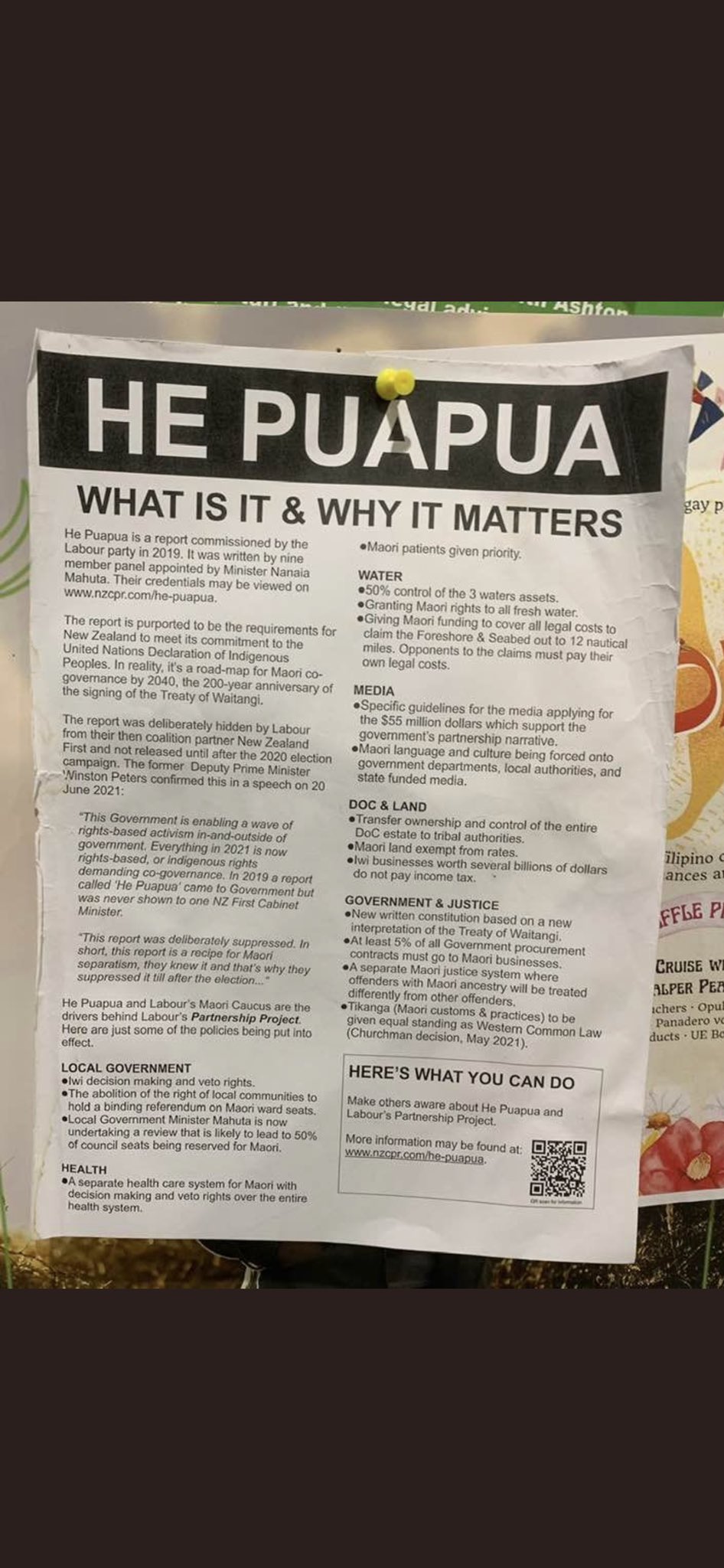Category Archives: General
This FAT Gay Fuck shouldn’t be in Government
Just leave this here
Have a read
Government is not the divine source of ‘truth’

‘Unless you hear it from us, it is not the truth,’ declared New Zealand Prime Minister Jacinda Ardern, in a chilling speech related to Covid health advice.
The 2020 clip was dug up by The Daily Wire yesterday, reminding the world what the crucible of government overreach looked like from the sober reality of 2022.
And it is not a pretty sight.
The hubris, delusional self-importance, and elevation of government to a position of ‘absolute unquestioned truth’ is a sign that New Zealand’s leadership has gone beyond its charter and waded into a China-style system of absolutism.
They were not alone in this behaviour.
There is no clearer indication of an authoritarian sickness taking hold than comments like this from the Prime Minister.
‘You can trust us as a source of that information. You can also trust the Director General of Health and the Ministry of Health. For that information, do feel free to visit – at any time – to clarify any rumour you may hear.
‘Otherwise, dismiss anything else. We will continue to be your single source of truth.
‘We will provide information frequently. We will share everything we can. Everything else you see – a grain of salt. And so I really ask people to focus.’
We will continue to be your single source of truth? At no point, for any reason, should a government in a civilised nation declare itself the final word on ‘truth’. It is why the video clip of Ardern grinning her way through this fit of egotism has gone viral.
Government is a service. An administrator. A protector (but not a parent). And a law-maker – although it spends far too much time doing this.
Since the pandemic, ministers have grown to crave the spotlight while the bureaucratic underbelly has found a power-niche latched to the public interest by fear. It is not a good combination.
It is easy enough to point out the obvious flaw in Ardern’s reasoning. Health advice coming out of governments around the world – including New Zealand – has been wrong. Repeatedly. And it is never corrected or the state-issued fines returned with an apology.
That is without considering the undemocratic nastiness that the government’s position led to where epidemiologists were quoted as saying horrific things like ‘with no jab, no job, no fun’ or inaccurate alarmist predictions like ‘if 95 per cent of the population is vaccinated, there will be death, disease, and hospitalisations for the last five per cent’. This is not being reflected in figures.
The last two years have revealed the weakness, not strength, of centralised expert opinion.
Those nations that chose to diverge from World Health Organisation advice provide us with a rare insight into better options, such as Sweden who respected the individual sovereignty of its citizens. Without disobedient nations, we would never know that this approach worked.
For the majority of nations, the population has been treated to the silencing of dissenting medical voices, threats to de-register practitioners who did not believe it was in the best interests of their patients to expose them to unnecessary risk, and the sacking of thousands of health workers – all of whom with more knowledge in the industry than Prime Ministers or Presidents – that did not agree with the government decree.
Ardern’s statement in particular undermines the founding principle of science – which is that science is an evolving system of knowledge whose expansion and advancement relies on diversity of thought, competing ideas, fresh data, and open challenges.
The suggestion that a government has some sort of special ordained knowledge on the subject, as though the Moses of Wuhan dragged a few plastic tablets down and laid out the divine law to Ardern’s advisers, is a nonsense.
Is mask-wearing a good idea? We don’t know. The government insists that it is essential to safeguarding the population but wide studies on the topic have repeatedly failed to produce the physical evidence necessary to justify mandates while incidental evidence pouring in from mask-wearing nations shows no clear indication it has any impact at all.
Were lockdowns the right approach? They were ordered by the government, and yet there is an increasingly opinion that they did more harm than good and should never be attempted again.
What about the Ardern pursuit of a Covid Zero New Zealand? How many press conferences were given insisting that New Zealand had conquered the virus and that government measures would protect New Zealand forever? These policies are now being labelled as ‘absurd’ and ‘damaging’. Most disagreed with the government advice at the time and warned that they were living in a fantasy bubble, prolonging and even worsening an inevitable outbreak – which is exactly what New Zealand is experiencing now with one of the fastest growing outbreaks in the world.
And as for vaccines – that house of cards is crumbling, globally, where adverse reactions and the deaths of young, healthy people pile up around leaders who mandated compliance against every social norm.
You could say that these were mistakes, but a government with absolute truth does not make mistakes. The presence of these grave errors prove exactly why the earlier statements should not be made.
There’s a reason governments are desperate to become the central source of information and truth – fending off opposing thought requires evidence and robust debate. Ministers do not want health policy challenged on merit because it would lose. It signals political weakness.
Hopefully, more of these clips will resurface so that those who promoted vile segregation, outrageous infringements on civil liberty, and general cruelty toward their fellow human beings can be remembered. Revisiting what happened in 2020 is the only way to stop it happening in the next pandemic.
Hearing the near deification of government should send a warning signal to every citizen that their democracy is heading in the direction of authoritarianism under the guise of ‘safety’ and public health.
The government can declare itself the source of all truth, but that does not make it true.
Thought you would like this
— animals going goblin mode (@mischiefanimals) July 24, 2022
Yep. Gay Fuckers.
Fear-mongering is simple.
Re-colour your weather maps with red and yellow and suddenly perfectly normal temperatures become THE END TIMES.
Just Perfect








